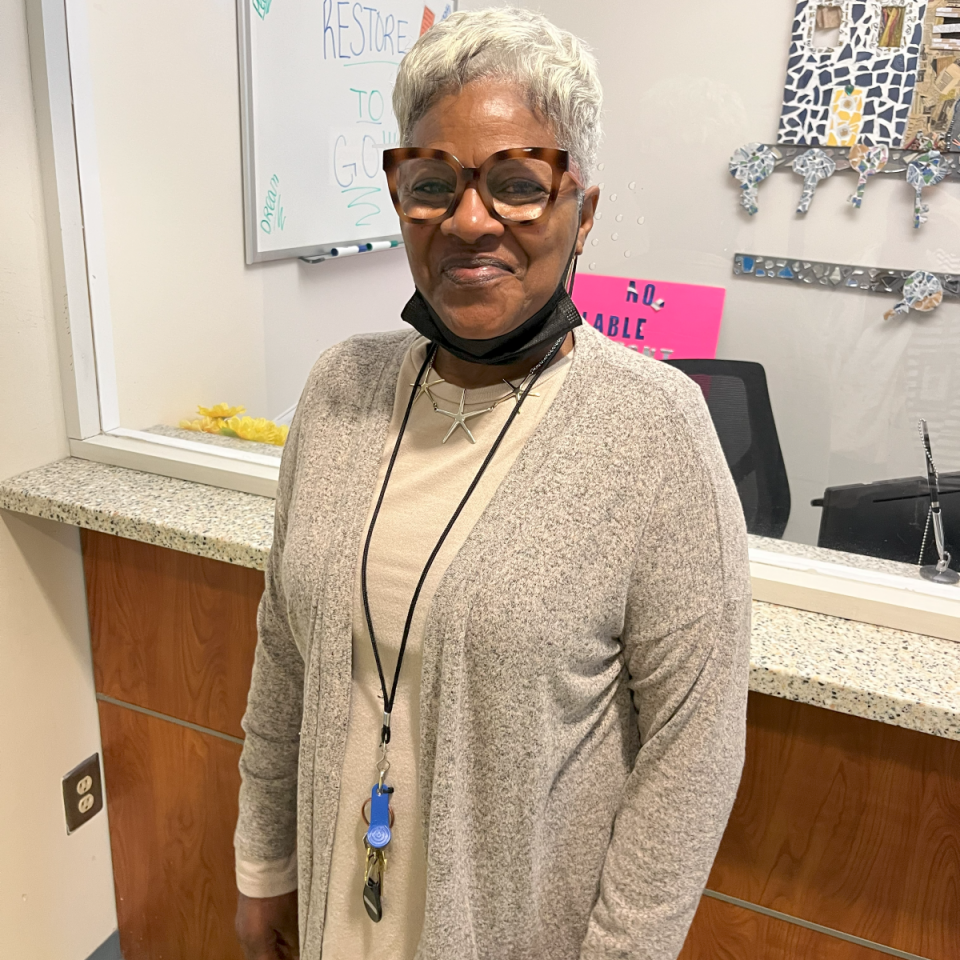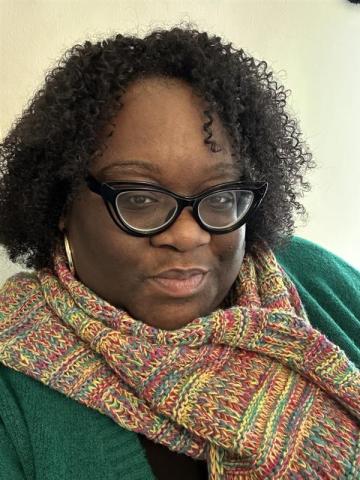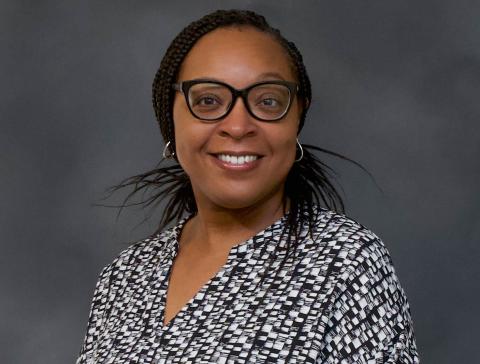
Day in the life: Peer Advocates
Just after Cynthia Turner, CPRS, arrived at our downtown clinic, she’s heading back out the door. She stops to grab a snack bag from the small food pantry that she helps stock for Housing Services. Healthy snacks aren’t just important as emergency sustenance for the clients she sees—they can also be a peace offering: everyone is happier opening the door for a home visit when you come with food.
As a Senior Peer Recovery Specialist, Cynthia wears a lot of hats. Some mornings she’s accompanying a client to the doctor’s office, others she’s behind her desk working on budgets and interviewing candidates for Peer Support positions. “I go where I’m needed,” she says.
This morning she’s on her way to visit one of the 32 clients she works with. “Most of the clients I see are dealing with severe mental health issues or are on heavy medications,” Cynthia explains. “Sometimes people see that and think they don’t have to take you seriously. In that case, we have their back.”
The person she’s visiting today has had an ongoing maintenance issue—a leak above his kitchen loosened the cabinets from the wall. They talk through it together: “I’m just happy to be off the street and living in an apartment,” he says, “so I don’t like to complain.”
“But that doesn’t mean you need to subject yourself to living some kind of way,” she tells him. “This maintenance issue has been going on since February. And you’re paying just as much rent as anybody else here.”
Cynthia says that the clients she sees are, “so used to being let down. I make sure that if I commit myself to doing something, I do it. I don’t lie to them or make promises I can’t keep. They have to know that they have the power. I am responsible to you, but not for you.”
“I tell clients sometimes, just because you were street homeless at one point, you don’t deserve to be treated any differently.”
Cynthia helps this client put in a work order for the leak.
Back at the office, she starts making calls: checking in to see if clients need anything, if they’re getting to their appointments all right, how they’re faring in their homes.
An older woman who’d recently been ill has been missing. “She didn’t show up the day her check came in,” Cynthia says. (Health Care for the Homeless serves as the representative payee for many people receiving Social Security benefits.) “And when I went by her place to deliver it and no one answered, I really started to get concerned.”
Cynthia reached out to another organization, where she knew this client received services, and talked to her supervisor, Housing Program Manager Carolyn Mburu, about calling the Sheriff’s Office to conduct a welfare check.
But today, a nurse from a local hospital reached out, calling the clinic provider listed in her file. “She was in the hospital. I'm just relieved we know where she is,” says Cynthia.
Cynthia is an integral member of a team of providers, case managers, and therapists. And providing a source of continued support for clients is why she likes working at Health Care for the Homeless.
“Some clients assume that providers, clinical staff don’t understand them because they’ve 'never been through it.’ But peers have been through it. Sometimes they’re telling you things that they would only tell family.”
Working in a field that brings up challenging times in your life can be hard. “I share bits and pieces of my own life when necessary,” Cynthia says. “I think I’ve healed through that. I can touch on the pain, but I don’t have to stay in it. For me, it motivates me. I have that lived experience. That’s why I’m a Peer.”
"Day in the life" features a closer look into staff members' perspectives and work on-the-ground. Read the last feature in the series, a ridealong with the Mobile Clinic, here.
More Recent News
We are thrilled to welcome Nikia Woodard, our new Director of Human Resources! With more than two decades of experience in the HR field, Nikia previously held leadership roles with the Maryland Transit Administration, Unified Women’s Healthcare and a behavioral health residential treatment facility for youth in Baltimore. Most recently, she served as Director of Employee Experience & Organizational Development at Loyola University Maryland, implementing university-wide professional development programs and encouraging a culture of continuous learning. Read on to learn more about Nikia (and her favorite snack)…
After a year of serving as Practice Manager of West Baltimore, Alkema Jackson is moving into the new role of Director of Practice Operations, Community Sites! She joined Health Care for the Homeless in 2022 as the Client Access Project Coordinator, collaborating across departments to help more people connect to agency services, and in 2023, she received a Core Value Award for Hope. Read on to learn more about Alkema’s approach to this new position…
Meet Christana Greene, our new Director of Compliance! With more than five years in the compliance field—most recently as Senior Quality and Patient Safety Specialist at GBMC Healthcare—Chrissy brings frontline insight to the role. She began her career as a medical assistant, gaining firsthand experience in what it takes to keep care safe and operations running smoothly. In her new role, Chrissy is focused on building a compliance culture grounded in safety, integrity and accountability. Read on to learn more about Chrissy...
Baltimore gets dangerously cold, and too many of our neighbors are out there. Here are three simple things you can do to make a difference in someone’s life this winter.




